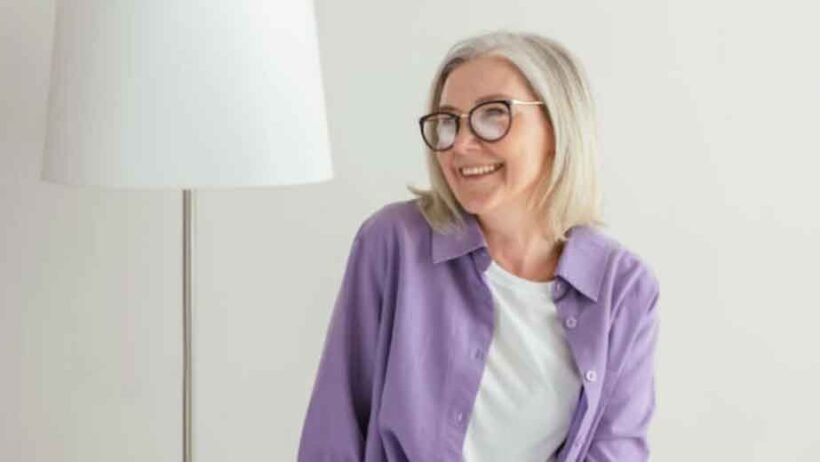More people today are living well into their 70s and 80s than ever before. This shift has changed how we think about aging. Many adults no longer see growing older as a slow decline. Instead, they want to stay active, independent, and confident. Modern medicine is helping them do exactly that.
Doctors and researchers now focus on prevention and long-term wellness. Instead of treating age-related problems after they appear, they aim to stop them before they start. Regular health screenings, smarter nutrition, and advances in skincare are part of this new approach. Aging gracefully no longer means hiding wrinkles or pretending to be young. It means taking control of your health, energy, and mindset.
Aging Gracefully Is About Living Well, Not Fighting Time
The idea of “anti-aging” once suggested a battle against nature. Today, it’s about balance. People are realizing that health, confidence, and vitality matter more than appearance alone. Medicine now supports this broader view by combining physical care with mental and emotional health.
This shift is important because it replaces fear with empowerment. When people understand that aging is a natural process that can be managed with care, they make better choices. That’s what “aging gracefully” means today — staying informed, proactive, and open to medical advances that genuinely improve life.
Skin Health Is Evolving Through Regenerative Treatments
Skin is one of the first places where aging becomes visible, and modern medicine is changing how we care for it. Regenerative treatments like platelet-rich plasma (PRP) therapy, micro-needling, and advanced laser techniques now help the skin repair and renew itself naturally. These procedures focus on supporting healthy function rather than forcing drastic changes.
Medical professionals increasingly promote options that work with the body’s own healing systems. Educational platforms such as The Plastic Surgery Channel, which features insights from board-certified surgeons, highlight how patient understanding and safety have become key priorities in modern cosmetic care.
By combining biological science with advanced technology, these treatments restore firmness and texture without surgery. They help people maintain skin health and confidence in a way that feels authentic and sustainable.
Preventive Medicine Is Changing the Rules
Medical care used to focus on treatment. Now, prevention is the main strategy. Doctors are using early testing and genetic screening to identify risks long before they turn into disease. This helps people take small steps early — steps that often make a huge difference later.
Preventive care also includes regular health checkups, nutrition tracking, and personalized exercise plans. Instead of waiting for health problems to appear, people work with their doctors to prevent them. This approach saves time, money, and unnecessary stress.
It also highlights how powerful small lifestyle changes can be. Simple habits — like consistent sleep, balanced meals, and moderate activity — are now recognized as medical tools. That’s what modern preventive medicine is about: practical, science-backed care that keeps the body strong over time.
Nutrition Is Becoming a Core Part of Medicine
The link between food and aging is stronger than ever. Medical experts now see diet as one of the most powerful tools for longevity. The focus has shifted away from quick diets or calorie counting. Instead, it’s about eating foods that support long-term health and reduce inflammation.
Research shows that whole foods, fiber, healthy fats, and antioxidants can slow cellular damage. Doctors also emphasize gut health, since it affects immunity and even mood. Nutrition counseling has become a routine part of many healthcare plans because what we eat directly affects how we age.
This approach empowers people to make simple, realistic changes — not drastic restrictions. It’s another way medicine is helping people take charge of their own health journey.
Mental and Emotional Health as the Foundation of Longevity
Modern medicine has made it clear that emotional wellness is a major part of healthy aging. Chronic stress can raise inflammation, weaken immunity, and affect heart health. Doctors now recognize that managing stress is as important as managing blood pressure or cholesterol.
Simple habits like mindfulness, therapy, and maintaining social connections have proven benefits. Studies show that people who stay mentally active and emotionally balanced live longer and recover faster from illness. Emotional stability supports physical resilience, while strong social relationships reduce loneliness — a factor linked to higher disease risk.
Medical care is becoming more holistic because of this link. Many healthcare programs now include stress management, counseling, and mental health screening as part of preventive care. It’s no longer just about treating the body but supporting the whole person.
Stronger Bodies Through Modern Movement Science
Staying active is key to aging well, but today’s exercise science goes beyond simple workouts. Doctors and physiotherapists now use functional movement assessments to help older adults maintain strength, flexibility, and balance safely.
Functional training focuses on movements used in daily life — bending, walking, reaching, and lifting. This type of activity helps preserve independence and reduces the risk of injury. In hospitals and clinics, personalized physical therapy programs are designed to maintain muscle mass and joint mobility.
There’s also growing use of technologies like motion sensors and rehabilitation apps to track progress. By combining medical insight with physical training, people can keep their bodies strong without overexertion. The focus has shifted from athletic performance to long-term mobility and comfort.
Better Sleep as a Scientific Anti-Aging Tool
Sleep is one of the most overlooked factors in biological aging. Medical research shows that during deep sleep, the body releases hormones that repair tissue, strengthen immunity, and balance metabolism. Poor sleep, on the other hand, is linked to faster cognitive decline and a higher risk of chronic disease.
Doctors are now treating sleep as a central part of preventive medicine. Sleep clinics assess breathing patterns, light exposure, and habits that affect rest. For example, treating sleep apnea or adjusting nighttime routines can improve focus, mood, and energy in older adults.
Technology also helps. Smartwatches and sleep-tracking apps give doctors accurate data to identify patterns and guide treatment. Quality sleep is now seen not as a luxury but as a medical necessity for longevity.
Modern medicine is reshaping how we experience age. It’s not about trying to look young forever but about staying capable, independent, and self-assured. Advances in prevention, nutrition, sleep, and mental health are giving people control over how they age.
The focus today is on extending quality of life, not just lifespan. People can remain active, connected, and vibrant well into later years. By combining medical science with healthy habits, aging becomes a process of maintenance — not decline.
Aging gracefully now means making informed choices, staying consistent with care, and trusting evidence-based medicine. With the right tools and guidance, it’s possible to grow older with confidence, clarity, and a strong sense of well-being.








